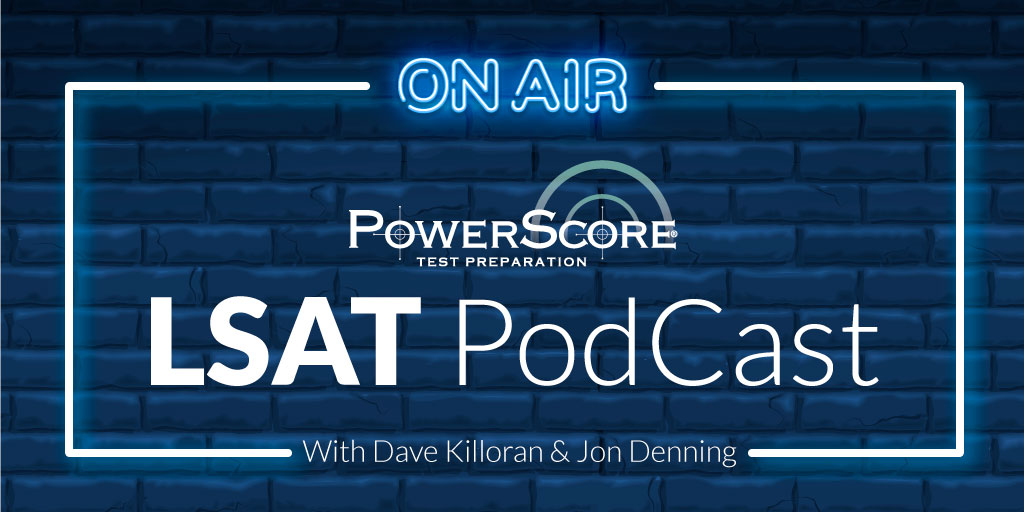In this episode, Dave and Jon explore an agonizing dilemma many law school applicants face: how to determine the best school to attend if you’ve been accepted to several. Within that discussion they provide a wide variety of analytical tools for gathering and comparing data, run through the main factors that should affect your decision, and finally take a close look at five specific, real-life application scenarios and explain precisely how they arrived at their recommended choice for each.
You can find the episode embedded below, but make sure to subscribe/follow and rate/review on Apple Podcasts, Spotify, YouTube, or Sticher!
Timestamps
0:00 – Intro where Dave and Jon talk evening drinks—to capture the essence of this episode’s prestige vs affordability theme, you’ll see they go in two very different directions—as well as tonight’s tune: Saint Motel’s My Type. It’s a perfect fit when discussing how to choose the law school that’s most suitable for you.
Lastly, a very brief tangent about Girl Scout cookies…which seems random until you realize Dave’s adorable daughter is currently selling them and anyone who’s a cookie fan can scoop up a few boxes through her order page!
5:59 – Getting back to the test, we take a look at what’s new in the world of LSAC, focusing on three main updates:
- A new Law:Fully blog post on the LSAT India, which naturally leads to a discussion of that particular exam and its utility to non-Indian test takers. One key takeaway is that there are several free, unique LSAT India exams that can be downloaded and used to supplement the other tests available to students.
- A new LSAC podcast episode from Josiah Evans on admissions data thus far this cycle and how it compares to this time/period last year (transcript). Perhaps the most interesting talking point occurred near the end when Mr. Evans talked about upcoming changes to how the Writing Sample is administered.
- And a new Kellye & Ken webinar scheduled for March 4th on the topic of “The Present and Future of Law School Rankings” (a subject especially relevant to the remainder of this PodCast episode, turns out). Reserve your spot here.
Scholarship vs. Prestige
17:46 – They introduce the notion of school selection, along with Jon lavishing Dave with praise for the blog that serves as the genesis of this episode. Read that article and look through the near-endless series of comments and Dave’s replies! It’s full to the brim with helpful information.
23:58 – A whole host of analytic tools—basically places to find tons of detailed information about law schools to allow for more objective comparisons—are outlined, beginning with methods to see school stats such as LSAT and GPA medians, graduate employment statistics, total cost, and more.
The three Dave discusses are:
- Law School Transparency (LST) School Profiles
- LST School Comparisons
- American Bar Association (ABA) 509 Disclosures
28:16 – School rankings also play a crucial, albeit controversial, role in the decision process, so next we look at two main sources for checking school rank:
- US News Rankings
- Above the Law Rankings (Dave and Jon’s preferred option)
32:49 – It’s impossible to ignore overall cost (tuition & cost of living) and loan repayment when choosing a school. So, the third toolkit is a pair of debt calculators to see what that repayment could look like:
Example Scenarios
35:58 – The fourth and final talking point before looking at specific scenarios concerns less data-driven analysis and slightly more subjective measures, such as geography and climate, familiarity with and nature of school location (big city, small town, etc), preference of post-grad job type and region, and overall likelihood of happiness and success.
42:00 – Scenario 1. Fordham ($105k scholarship) vs USC ($150k scholarship) vs UPenn (full price), with a desire to eventually work big law in New York.
1:02:46 – Scenario 2. Penn State (ranked #74; full scholarship; attended for undergrad) vs UConn (ranked #50; half-tuition scholarship), with no desire for big law.
1:10:46 – Scenario 3. Submitted by an applicant’s parent. Miami (full price) vs Loyola (full price) vs Capital University (full scholarship; a regional non-ranked school close to the applicant’s home), with no strong desire for big law.
1:27:28 – Scenario 4. Tennessee (ranked #65; full scholarship plus a stipend and healthcare) vs Emory (#22; full price), with zero debt currently and a plan to remain in the southeast after graduating.
1:36:46 – Scenario 5. UC Berkeley (full price) vs Chicago (full price), and maximizing the potential of landing a big law job post-grad.
1:48:20 – Jon and Dave close out the conversation with a brief look at negotiations. Specifically, they discuss potential admission and more scholarship money.
1:57:41 – A big thanks for listening! Be sure to subscribe, leave us a rating, and send us any questions or topics you’d like us to cover: lsatpodcast@powerscore.com.


Leave a Reply